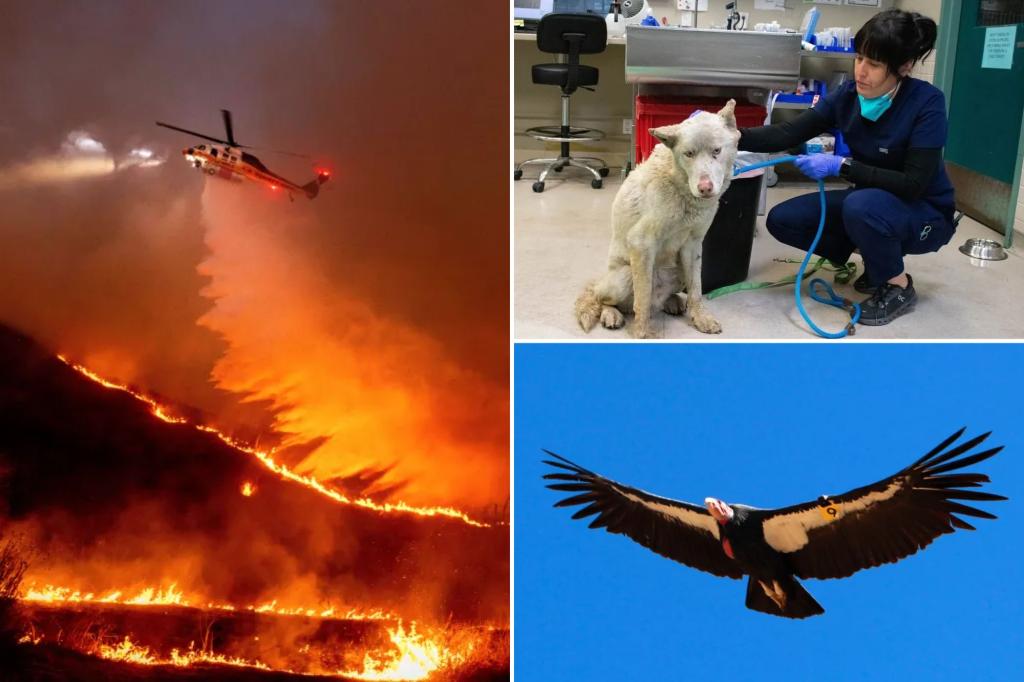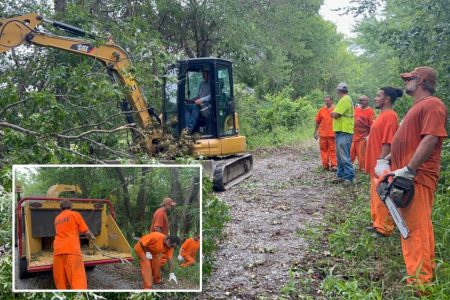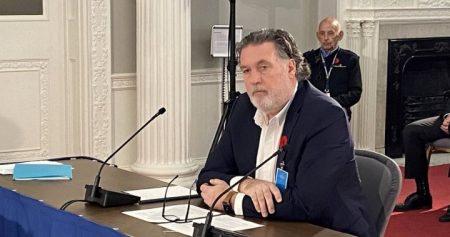The devastating wildfires that recently ravaged Los Angeles have left an undeniable scar on the landscape, claiming human lives, destroying homes, and disrupting communities. Beyond the immediate human tragedy, however, lies another casualty of these infernos: the diverse and often fragile wildlife that calls these areas home. Biologist and wildlife conservationist Jeff Corwin stresses the urgent need to address the impact of the fires on the animal kingdom, highlighting the plight of endangered species, displaced creatures, and beloved pets caught in the inferno. The fires scorched critical coastal and mountain habitats, threatening the survival of vulnerable species like the California condor, a critically endangered bird with a significant population residing within the fire zone. The already precarious existence of these condors, with only 350 remaining in the wild, is now further jeopardized by the destruction of their habitat. Beyond the condors, countless other animals, including mountain lions and black bears, face displacement and potential starvation due to the loss of their homes and food sources.
The fires have not only displaced wildlife but also wreaked havoc on the lives of domesticated animals. Corwin, deeply concerned for the “non-human members of our families,” laments the thousands of cats, dogs, and horses injured, killed, or separated from their owners during the chaotic evacuations. While acknowledging the tragedy of lost pets, he also encourages those searching for their animal companions to remain hopeful. He advises returning to their properties and leaving out food, water, and a camera to monitor for any signs of their pets’ return, highlighting the tenacity of these animals and their potential to survive. This advice offers a glimmer of hope for reunions amidst the widespread devastation.
Corwin emphasizes the critical work being done by animal shelters, which are facing an overwhelming influx of animals affected by the fires. Pasadena Humane, an emergency shelter, has already taken in over 400 animals suffering from smoke inhalation, burns, singed paws, and dehydration. These animals require immediate medical attention, and shelters are desperately seeking monetary donations to procure necessary supplies and resources. The shelter’s website serves as a platform for sharing heart-wrenching stories and images of the animals in their care, urging the public to donate and support their recovery. The impact of the fires extends far beyond immediate injuries; the long-term care and rehabilitation of these animals will require sustained financial support and community involvement.
The scale of the animal crisis necessitates a collective effort to provide support and relief. The Los Angeles County Department of Animal Care and Control and Los Angeles Animal Services have issued urgent calls for foster homes, as the city’s six shelters are at capacity. This plea underscores the critical need for public participation in sheltering displaced animals and easing the burden on already strained resources. Fostering provides a temporary safe haven for these animals and creates space in shelters for incoming injured and displaced creatures. It is a tangible way for individuals to contribute directly to the recovery effort and provide comfort to animals in desperate need.
Corwin, through his nonprofit, the Brady Hunter Foundation, has already contributed $31,000 to aid animals impacted by the wildfires. His personal commitment underscores the urgency of the situation and serves as a call to action for others to join the relief efforts. He emphasizes that every contribution, no matter the size, can make a difference in providing essential care and support to these vulnerable creatures. The financial strain on shelters and rescue organizations is immense, and the influx of injured animals requires a continuous supply of medical supplies, food, and shelter. Public donations are crucial for sustaining these vital services and ensuring the long-term well-being of the animals.
The Los Angeles wildfires serve as a stark reminder of the interconnectedness of ecosystems and the vulnerability of both humans and animals in the face of natural disasters. The devastation extends beyond the immediate loss of life and property, impacting the delicate balance of the natural world. The urgent need to protect and support wildlife during these crises is paramount, and the collective efforts of individuals, organizations, and government agencies are crucial for ensuring the survival and recovery of affected animals. The outpouring of support from organizations like the Brady Hunter Foundation and the dedicated work of shelters like Pasadena Humane demonstrate the compassion and resilience of the community in the face of adversity. The long road to recovery will require continued dedication, financial support, and a commitment to rebuilding not only human lives but also restoring the natural habitats that sustain the diverse wildlife of the region.










